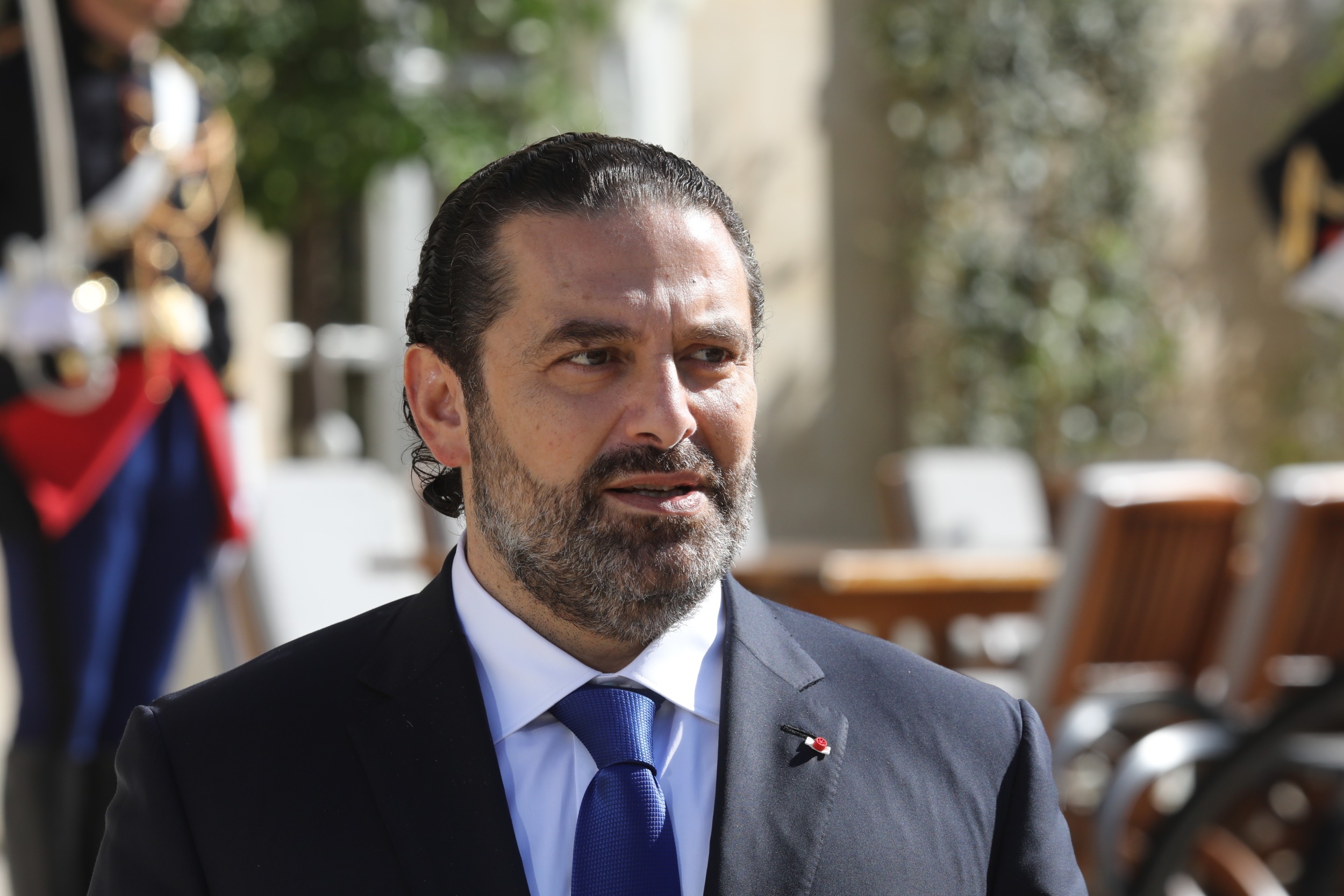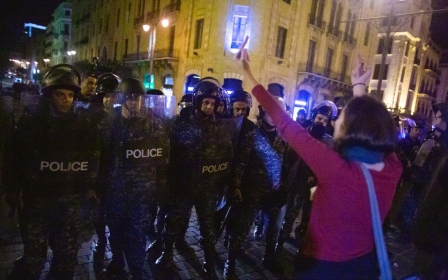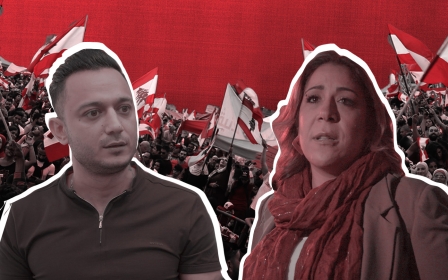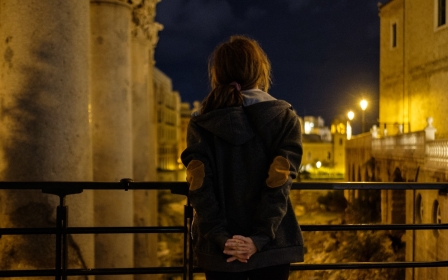Saad Hariri rules himself out as Lebanon's next prime minister

Saad al-Hariri has once again ruled himself out as a candidate to be Lebanon's next prime minister, 50 days after he resigned from the post amid nationwide protests against the country's widely reviled political elite.
Hariri, Lebanon's leading Sunni politician, made the statement on the eve of formal consultations to designate a new prime minister, a post reserved for a Sunni in Lebanon's sectarian system.
New MEE newsletter: Jerusalem Dispatch
Sign up to get the latest insights and analysis on Israel-Palestine, alongside Turkey Unpacked and other MEE newsletters
"I announce that I will not be a candidate to form the coming government," Hariri said on Wednesday.
"I am heading tomorrow to take part in the consultations ... on this basis, insisting that they not be delayed for any reason," he said.
Hariri did not say who he might nominate for the post in the consultations, which President Michel Aoun is due to host on Thursday.
Parliamentary consultations have been repeatedly postponed.
Aoun, a Maronite Christian, is required to designate the candidate with the most support among Lebanon's 128 members of parliament.
Why are the Lebanese protesting?
+ Show - HideCorruption and clientelism
Lebanon suffers under a complicated, sectarian-based power-sharing political system that has entrenched politicians and their parties in power.
Many of Lebanon's leaders are drawn from families that have dominated the political scene since its independence from France in 1943.
Parties largely claim to represent Lebanese belonging to specific confessions; parliamentary seats and top offices are divided between the 18 officially recognised sects.
However, they have largely become vehicles for corruption and clientelism and struggle to cross Lebanon's fractured political divide to reach consensus for the good of the country.
Lebanese on the streets are now calling for the removal of the entire political class.
Economic crisis
Lebanon's economy has been hit by repeated political deadlocks in recent years. Government finances are strained by a bloated public sector, debt-servicing costs and subsidising the state power producer.
Fitch ratings agency recently downgraded the country's sovereign debt, which stands at $86bn - more than 150 percent of gross domestic product - deep into junk territory.
On 2 September, Lebanon declared a state of economic emergency, vowing to speed up public finance reforms in an acknowledgement of the financial situation afflicting the country.
But the government's recent proposal of austerity measures and tax increase has angered citizens who accuse politicians of corruption, theft and leaving them behind with rising unemployment.
The crisis has caused the unofficial exchange rate to rise to 1,600 Lebanese lira to one US dollar, almost 100 lira over the officially pegged exchange rate of LL 1,507.5.
WhatsApp tax
As the Lebanese government looked to increase revenues in its 2020 budget, it decided on Wednesday to charge citizens $0.20 per day for making voice calls using online applications such as WhatsApp and Viber.
The move would have charged users $6 per month on top of already hefty telecoms bills. Lebanon has some of the highest mobile network prices in the world.
Adding to the country's list of problems - longstanding environmental crises, water and electricity shortages, crumbling infrastructure and lack of state services - is Lebanon's extremely unequal distribution of riches.
According to Lebanese newspaper Al-Akhbar, 1 percent of the wealthiest people in the country own 58 percent of Lebanon’s wealth, while the poorest 50 percent own less than 1 percent.
In a country infamous for being a fiscal haven for the ultra-rich, imposing taxes on technology used by all parts of society is a bitter pill to swallow. The government has now backed down.
Wildfires
Earlier this month, more than 100 forest fires broke out across Lebanon and the government came under heavy criticism for being unprepared to deal with the situation.
Citizens questioned why three of the country's emergency helicopters had not received maintenance work since they were purchased in 2009 at a cost of $13.9m.
Instead of firefighting helicopters, Lebanese army helicopters and civil defence teams were deployed to fight the blaze, while Cyprus, Jordan and Greece sent planes to assist.
The civil defence was forced to borrow riot control vehicles mounted with water cannons to battle the fires in the Chouf area.
The move was not well received by the Lebanese public, who criticised the government for keeping these vehicles in top condition to use against citizens during protests, instead of ensuring that life-saving equipment such as firefighting helicopters stay operational.
With the support of Lebanon's Sunni religious establishment behind him, Hariri had appeared to be the only candidate for the job earlier this week, despite political tensions with adversaries, including Aoun.
The crisis escalated when the Christian Lebanese Forces said it would not name Hariri nor anyone else in the consultations, meaning that his candidacy would not enjoy the support of either of Lebanon’s two main Christian parties.
Mass protests have been raging across the country for several weeks in response to planned tax hikes that would have hit people's pocketbooks hard.
Since then, daily protests across the country have called for the complete removal of the political class and an end to corruption that is so rife in Lebanese politics.
The country is currently mired in its worst economic crisis since the 1975-1990 civil war, with big government spending resulting in one of the highest debt-to-GDP ratios in the world.
The country is also facing a dollar liquidity crisis, with banks limiting the withdrawal and transfers of the greenback, which has been selling for more than 2,000 Lebanese pounds on the parallel market for the first time since it was officially pegged at 1,507 in 1997.
Middle East Eye delivers independent and unrivalled coverage and analysis of the Middle East, North Africa and beyond. To learn more about republishing this content and the associated fees, please fill out this form. More about MEE can be found here.




